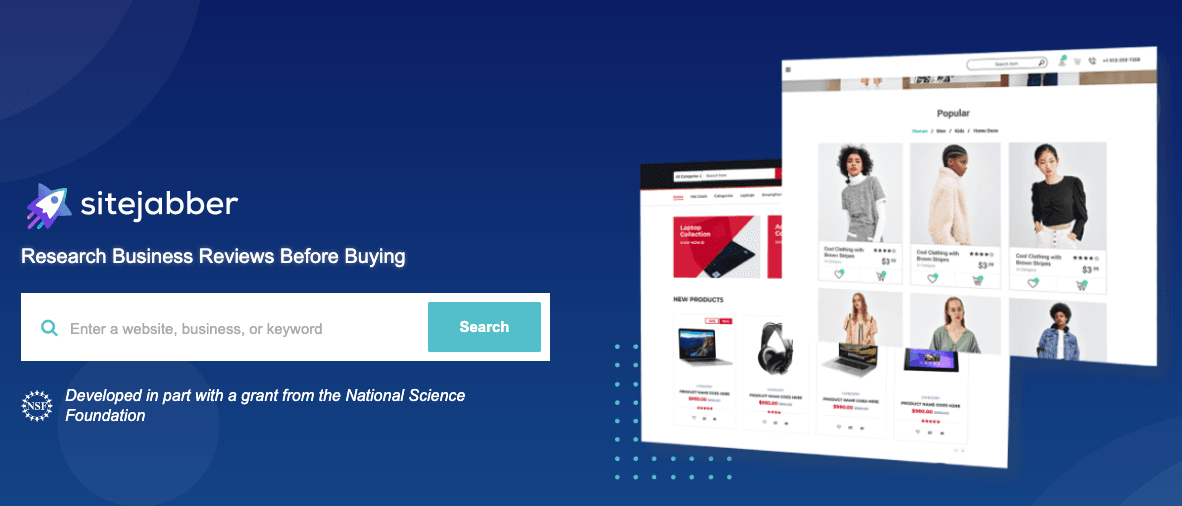Your online reputation is a reflection of how people view your business. Buyers form impressions from your website, product listings, how others talk about your products, services, and support, and from anywhere else they come across your brand.
How they feel about your company plays a pivotal role in how customers will view your company.
How online reputation impacts your business
Bad reviews along with negative or misleading information about your business, products, or services can damage your reputation. They can drive customers away, send low-quality signals about your website, and cost you money.
Here are just a few online reputation statistics that show how important a positive reputation is for your business:
- 93% of buyers say online reviews impact purchase decisions.
- Buyers spend an average of 31% more for larger purchases from businesses with strong reviews.
- 92% of B2B buyers are more likely to convert after reading reviews from sites they trust.
- Elevating your star rating from 3 to 5 can increase your clickthrough rates by as much as 25%.
- Businesses with a 1 to 1.5 rating earn 33% less on average.
The message is clear. Your online reputation and reviews are crucial. Your reputation can either be your business’ strongest asset or biggest weakness.
How your reputation currently looks
So, what does your reputation look like currently? There are a few key places you should check, such as search engines and review sites, and an easy way to keep track of new information that pops up.
Search engines
You can check your reputation online by searching for your business name and other phrase variants on Google, Bing, and other search engines. What surfaces on the first page of SERP? Your website listing, high-ranking review platforms, and your Google Business Profile are important results to manage. If you’re a local business, star ratings for your business may also display in maps and other listings when people search for your business, so you want to make sure you’re looking good.
The lack of information about your business is also detrimental. If your business does not have much of an online presence, you’re only reaching your audience at the tip of the iceberg. Additionally, if prospective customers can’t find sufficient information, more often than not, you’re losing leads.
Review sites
While review sites may vary depending on your industry, products, and services, look up your company on the major review sites:
- Sitejabber
- Trust Radius
- G2
- BBB
- Capterra
- Gartner Peer Insights
Also, check your reputation and online reviews on any sales platforms you use, such as Amazon and your social media accounts.
Set up Google Alerts
Google also offers a free tool to alert you when new information about your company is posted. Go to Google Alerts and type in the name of your company, product, service, or industry and you’ll get an email anytime something new shows up online.
You may also want to set up alerts for your competitors. It’s always helpful to know what buyers are saying about them.
Ways to improve and maintain your reputation
By regularly monitoring your online presence, you can improve and maintain your reputation. Things can change quickly, so it’s important to stay up to date on what people are saying about your business.
Improve visibility
If someone is looking for products or services in an industry you serve and they can’t find you, they’re not likely to do business with you. You need to make sure you are represented in the places where people look. If your business isn’t highly visible on search engines or listed on review sites, you’re missing a big opportunity.
Be transparent
If you make a mistake, own up to it. Not only does this show that you stand behind your products, but it lets buyers know that you take problems seriously and fix them.
Identify any negative comments
When you find negative comments, take the necessary steps to address them. It’s important to help your customers as much as possible – you help a customer with their issue and show positive support from your team.
Engage with buyers
Whether someone leaves a positive or negative review, it’s important to engage with them. You may be able to turn a negative review into a positive one or build relationships with buyers to improve their experience.
Encourage positive reviews and showcase online reviews
The more positive reviews you have, the better your reputation becomes. Ask satisfied buyers to review your company, products, or services.
- Automate review request emails after purchase
- Invite past customers to leave reviews
- Allow customers to leave reviews directly from your website
- Make it easy for customers by providing links to review sites
- Leverage a review management software
Using a review management solution with a proven track record can relieve your team’s workload, help manage your reputation, and scale your online presence.
Monitor your competition
It may provide information to give you a competitive edge. For example, if there are complaints about shortcomings with a product or service, you may be able to highlight how you have a better solution.
Focus on solutions to problems
In your marketing messages, show how your products or services solve buyers’ problems. Focus less on the features you provide and highlight the benefits buyers get from working with you.
Manage your reputation carefully
Reputations, whether online or offline, take a long time to build. But they can crumble easily by a few unhappy buyers or someone out to do damage. Make sure you are vigilant in monitoring your reputation and taking action when problems arise. Bad news rarely ages well, so the sooner you can address it, the better you can control the narrative.
At the same time, make it easy for your satisfied customers to share positive reviews and feature them. Positive reviews send trust signals that can enhance your reputation and encourage conversions.










